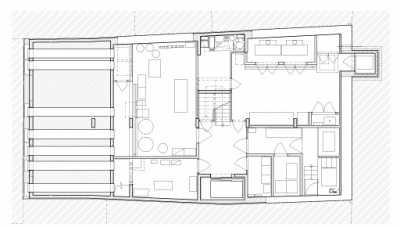Metropol Hotel
The Metropol Hotel replaces an older office building from the 1970Žs on an important main street in the Prague city centre. During the process of designing we tried both to respect the context of the boulevard and follow our visions of a contemporary vibrant city with urban palaces, cafés, restaurants and shops open to the street and all other things that support and accelerate modern urban life.
For that reason the whole ground floor of the hotel is occupied by an café and a restaurant. These can be fully spatially connected with the street thanks to big, automatically operated vertical sliding glass panels. In order to get as much free space as possible, all service and utility rooms are hidden in the basement. Eight upper floors contain 64 identically equipped hotel rooms, which are organized around a central staircase hall. A sundeck on the top offers exclusive views on the city.
The building is covered with a structural glazing façade - a technologic streamline body with a compact shape and smooth curves. Extensive, screen printed glass areas are shaded by automatic textile sunblinds. Like a thin membrane, the façade provides the inside with constant light and view, while on the outside there is a continuous change of reflections and transparency.
The interiors are designed with the intent to provide maximum comfort for the guests. Rounded edges, indirect lighting, acoustic panels, composit materials or selected colours support a friendly atmosphere. Modern hotel technology standards, such as automatic room controls or intelligent card systems, contribute to a user-friendly environment.
The need to economize the space of the narrow plot generated the construction system. The basements and vertical cores are made of cast concrete, the structure of the upper floors is a short-span steel frame with posts hidden in the partition walls and the ground floor is clear of any columns thanks to a system of massive horizontal beams on the first floor level.
Substantial energy savings are enabled thanks to modern technologies. Thermal insulation glass with a new generation of soft coating was used. The façade is regulated by automatic systems, its outer motoric textile sunblinds react on the actual intensity of sunshine and wind. Large mechanical windows close automatically after the guest leaves the hotel room and heating and ventilation of the room are adjusted when a window is opened.

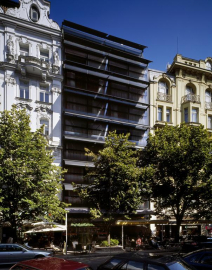
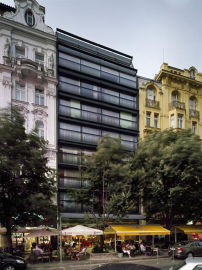
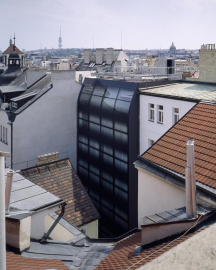
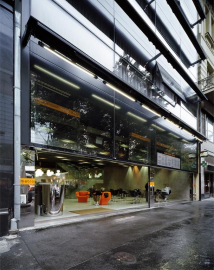
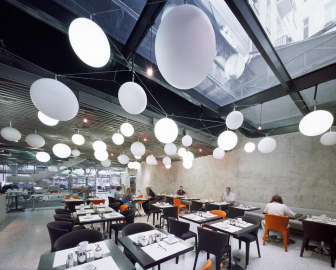
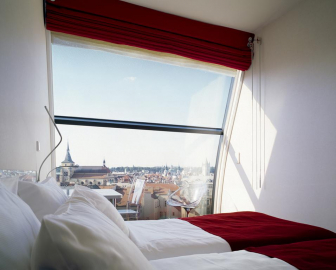
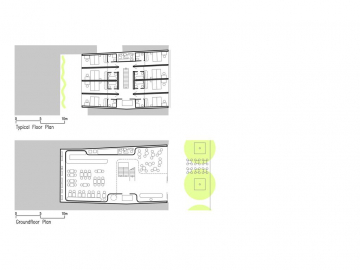
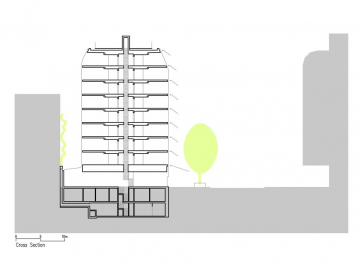
.jpg)
.jpg)
